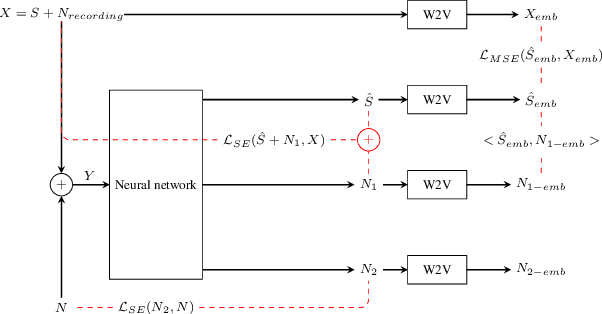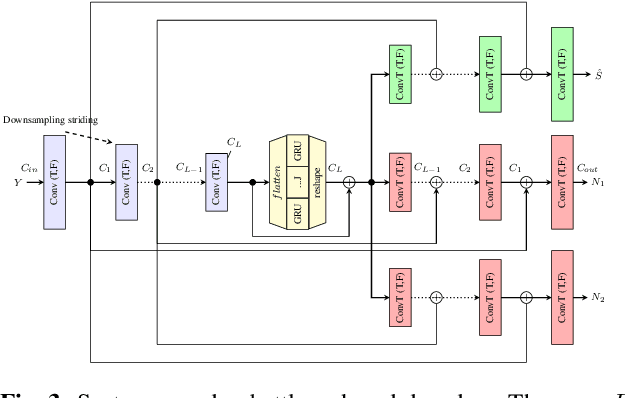Unsupervised Speech Enhancement with speech recognition embedding and disentanglement losses
Paper and Code
Nov 16, 2021



Speech enhancement has recently achieved great success with various deep learning methods. However, most conventional speech enhancement systems are trained with supervised methods that impose two significant challenges. First, a majority of training datasets for speech enhancement systems are synthetic. When mixing clean speech and noisy corpora to create the synthetic datasets, domain mismatches occur between synthetic and real-world recordings of noisy speech or audio. Second, there is a trade-off between increasing speech enhancement performance and degrading speech recognition (ASR) performance. Thus, we propose an unsupervised loss function to tackle those two problems. Our function is developed by extending the MixIT loss function with speech recognition embedding and disentanglement loss. Our results show that the proposed function effectively improves the speech enhancement performance compared to a baseline trained in a supervised way on the noisy VoxCeleb dataset. While fully unsupervised training is unable to exceed the corresponding baseline, with joint super- and unsupervised training, the system is able to achieve similar speech quality and better ASR performance than the best supervised baseline.
 Add to Chrome
Add to Chrome Add to Firefox
Add to Firefox Add to Edge
Add to Edge